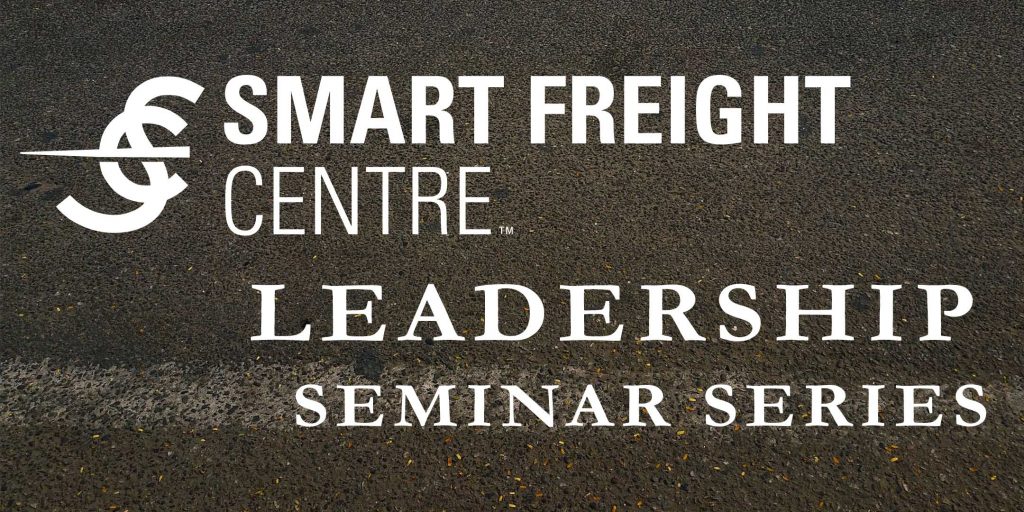Dr. Miguel Jaller, Associate Professor and Co-Director of the Sustainable Freight Research Center at the University of California, Davis, presented “Who shops online and how sustainable is the delivery process?” on February 12, 2021 for the Smart Freight Centre Leadership Seminar Series.
Retailing and distribution go hand-in-hand. Economic transactions and the movement of people, goods, and services influence one another.
People go through a shopping process of activities before, during, and after a purchase. This process can affect customer behaviour as substituted, complementary, modified, or induced behaviour.
On any given day before COVID, 40% of the US population would shop, and 2-3% would shop online. Now, 55% of the US population shop online, and 80% of all shopping is influenced by e-commerce.
Shopping behaviour differences are tied to demographic and regional differences. People in larger cities, especially on the US west coast, shop more online. In general, there is overall complementarity where online assists in-store purchasing, and there is a substitution effect at the commodity level where people would only shop online. For shopping externalities, there were no large upstream effects, and local air pollutants were the most critical parameter. However, without substitution, increased online shopping generates net negatives impacts.
Jaller presents a high-level analysis that looks at the supply chain from retailer to customer to determine delivery sustainability. The biggest difference between a retailer and an e-retailer was the contribution from customer transport vs last mile delivery, respectively. Efficient delivery carrier companies can practice sustainability, and consolidating packages is key.
Carbon dioxide emissions per item breakdown

However, expedite or rush deliveries wipe out the benefits and disproportionately increase externalities, and strategies revolving around rush deliveries just partially mitigate the impacts.
Delivery service time guarantees can have great costs, up to more than four times when delivering from an optimal location. Companies require additional facilities to serve within short time windows. These time windows can have large negative consequences, like increasing miles traveled up to three times. Crowdsourced delivery services could reduce private costs by 30-40%, but may be affected by new regulations and do not alleviate externalities.
Jaller says that rush deliveries are not sustainable; strategies revolving around rush deliveries just partially mitigate the impacts.
Abstract
In recent years, the rapid adoption of omnichannel distribution strategies has dramatically changed how we shop and the way companies design their retail and distribution operations. All these changes have important implications for the sustainability of our urban transportation systems.
This presentation discusses the implications for assessing the shopping demand and logistics decisions under this dynamic environment. Specifically, Dr. Jaller will discuss changes in shopping decisions, from where to shop, what to shop, and how much to shop.
Using information from public travel surveys (e.g., American Time Use Survey, and the National Household Travel Survey), Dr. Jaller will discuss the factors that affect shopping decisions.
Additionally, the presentation will provide an overview of the impacts of and tradeoffs between decisions about facility location, fleet and technology characteristics, delivery time-windows, and the use of private crowdshipping services. Dr. Jaller will cover the impacts from these decisions when thinking about the sustainability of the system with respect to travel activity and emissions.
About the speaker

Miguel Jaller is an Associate Professor and Co-Director of the Sustainable Freight Research Center at the University of California, Davis. He received his B.Sc. and M.Sc. in Industrial Engineering from Universidad del Norte, Colombia, and his M.E. in Transportation Engineering, M.Sc. in Applied Mathematics, and Ph.D. in Transportation Engineering from Rensselaer Polytechnic Institute.
His research is highly multi-disciplinary and analyzes the societal and private impacts of transport and logistics operations, technology, and policies to develop tools to achieve a sustainable transportation system. His research interests include sustainable transportation systems, freight transportation and logistics, disaster response logistics, and operations research.
Dr. Jaller leads important research projects funded by the National Center for Sustainable Transportation, the Center for Transportation, Environment, and Community Health, and the Pacific Southwest Region University Transportation Centers. He also conducts projects for state and federal agencies such as the California Department of Transportation, and the Environmental Protection Agency.

